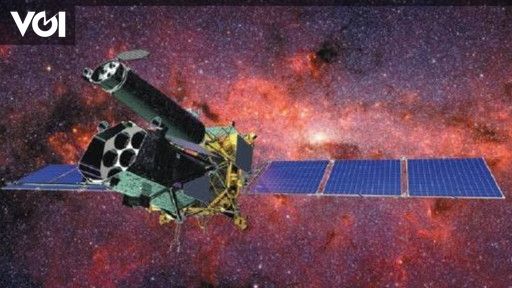JAKARTA – Russian space agency Roscosmos said it would restart telescopes that were discontinued by Germany because of the Ukraine war. This action is claimed to be carried out unilaterally by Russia.
The X-ray telescope, named eROSITA is now put into sleep mode by Germany’s Max Planck Institute in protest over Russia’s war in Ukraine. Currently, eROSITA is aboard the 1.2 tonne Spektr-RG spacecraft, located about 1.5 million km from Earth in a halo orbit.
It is known that eROSITA is working together with the Russian instrument, ART-XC, to scan distant galaxies on a joint German-Russia. The instrument made its first observations in late 2019 and is intended to conduct a survey over a period of seven years.
“I gave instructions to start work on restoring the operation of the German telescope on the Spektr-RG system so that it cooperates with the Russian telescope,” said the head of Roscosmos, Dmitry Rogozin.
“Despite Germany’s request to close one of the two telescopes on Spektr-RG, Russian specialists insist on continuing their work. Roscosmos will make the relevant decision in the near future.”
But launch ArsTechnicaTuesday, June 7, German officials said that they would restart scientific instruments, but without their cooperation they could cause damage to the telescope.
–
–
“They, the people who made the decision to close the telescope, have no moral right to stop this research for mankind just because their pro-fascist views are close to our enemy,” Rogozin said.
As information quoted from DW, the eROSITA telescope was launched by Roscosmos on July 13, 2019, from the Russian launch site Baikonur in Kazakhstan. It started collecting data in October 2019.
The Spektr-RG mission, which was deployed in conjunction with the Russian telescope, aims, among other things, to detect black holes. eROSITA was put into sleep mode on February 26, two days after Russia began its invasion.
Russian and German researchers were able to jointly evaluate the data sent by the two devices. By the time it closed, eROSITA had completed four of its eight planned full sky surveys. Data from the first four are still being evaluated by scientists.
–


